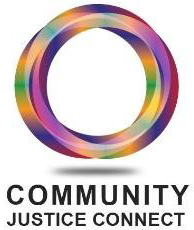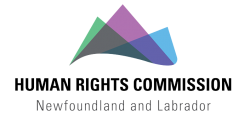
Community Justice Connect is free, voluntary, and confidential. Our program provides a variety of conflict resolution services to Indigenous, racialized, and religious minority communities throughout Newfoundland and Labrador. Our service is a place people can find help to address concerns, conflicts, and racism – direct, indirect, or systemic. We are a place to connect with trained community facilitators who will listen to what’s happening, help you identify a way to deal with the situation, and connect you with the right support services. Our commitment to Indigenous, racialized, and religious minority communities in NL is to provide an authentic service that is accessible, value-based, and creative.
Who can use Community Justice Connect?
Community Justice Connect is open to residents of NL, regardless of immigration status, who identify as Indigenous, racialized or a religious minority, and are experiencing conflict.
Community Justice Connect can also help organizations (schools, government, workplaces, healthcare etc.) who identify or are in conflict with a person who identifies, from one of these three designated groups. We will work with organizations that are committed to respectful relations. We do this by working with the organization to design a conflict resolution process. Using the principles of restorative justice, anti-racism and anti-oppression we will help you create a plan to address your conflict.
The Human Rights Commission can refer complaints to Community Justice Connect. This can only happen when both the complainant and the respondent agree to participate. If the Community Justice Connect process is successful, your human rights complaint will be closed.
If no agreement is reached, you can continue with your human rights complaint. Anything discussed at Community Justice Connect is confidential and will not be shared with Human Rights Commission staff involved in the human rights complaints process.
Contact us or use our online form to see if Community Justice Connect is right for you.
The goal of Community Justice Connect is to:
- Treat people with honor, dignity, and respect
- Guide people through difficult conversations on racism, conflict, and harm
- Increase and promote access to justice
- Focus on relationship building and mutual understanding
- Support individuals, organizations and community, to understand, explore and address issues of systemic racism
- Coach people on ways to resolve disputes when the other party is not engaged
- Be creative
- Be flexible
- Meet people where they are
- Be accessible
What do we mean by conflict?
Conflict can exist in all spaces of our lives. Conflict is a normal part of healthy relationships. When a conflict becomes overwhelming, it can negatively impact your life. Reaching out for help on how to approach, understand and deal with the situation can be helpful. If dealt with in a healthy way, conflict has the potential to be a growth and learning opportunity.
Conflicts that involve racism, both indirect and direct, can be very difficult. The harm that is created through racism can be devastating. Dealing with these types of conflicts is hard. You may not know what to do or say. You may not know how to deal with your experiences of racism because of the power imbalance in the relationship. You may find support helpful.
You may also experience conflict with a system or a process. Community Justice Connect can help people name and break down what’s happening and put it into manageable pieces.
Community Justice Connect offers a range of different services. We can help you:
- Work through conflict on your own
- Understand basic government forms or documents
- Understand basic legal information and give support to people navigating through the courts or other legal processes. We cannot give legal advice, but can refer you to PLIAN Homepage – Public Legal Information Association of NL (PLIAN)or other legal services
- Get conflict coaching
- Address disputes between neighbours or landlords
- Address issues with your employer
- Deal with your experiences of discrimination and/or harassment because of your Indigeneity, race or religion
Our Model

Our process is a way of listening and responding to harm. It isn’t something you just do, it’s a way of being. We are mindful of how we speak, see, listen, ask questions and think. Community Justice Connect is offering a place to be, examine, reflect on what is needed to hopefully allow you a healthy way to deal with what’s happening in your life.
What is Restorative Justice? And why are we using this model?
Restorative Justice is a way of approaching a difficult situation. We focus on the needs of the people involved by asking a series of questions that help you understand what is happening. Our model for Community Justice Connect is built on integrating the ways of being restorative and anti-racist.
Restorative justice focuses on connections between and among the people involved in a situation. It focuses on the harm done and the needs and obligations of the people involved. Our focus is on engagement, dialogue, a commitment to understanding and to helping the people involved decide how to make things right.
We will provide a space for people to be heard, to empower people to address harm, and to assist all the people involved in the situation.
Community Justice Connect approaches conflict by asking these questions:
- What happened?
- Who was harmed?
- What are the causes of the situation?
- What are people thinking/feeling? At the time it happened, and now?
- Who has been affected? In what way?
- What are their needs?
- Whose obligation is it to meet those needs?
- Who else needs to be involved?
- How can the relationship be repaired (to the person, others, the community, the environment)?
Community Justice Connect uses an anti-racist and anti-colonial approach to restorative justice. Community Facilitators also consider the following questions:
Individual
- How do we know we are listening to people’s lived experiences?
- Might we have red flags/bias/blind spots that we are missing?
- How do we best support participants who have experienced racial harm? And how do we work with participants in understanding the impact of racial harm?
- Who is benefiting from the conversation and/or incident?
- Who is carrying the burden of the conversation and/or incident?
- How do we not cause further harm?
Systems/structures
- What structures/systems are we operating in?
- Is this situation impacted by a colonial mindset? How?
- In this situation, how can we imagine and think outside the constraints of colonial structures?
- Is there a power imbalance? What is it?
Community
- How are we honouring, respecting and acknowledging cultural practices and approaches?
- How broad is the harm? Does it include historical, societal or community harm?
- How do we talk about race, racism, privilege and bias?
- Can and how do we call people in to community, rather than push them out?
- How are we honouring the dignity and worth of everyone involved?
Community Justice Connect will also identify systemic issues affecting communities through trends we may see in cases. We’ll help design processes to engage needed individuals, organizations, community and/or government.
Our process

Our process is pretty simple. We work with people in conflict, who are committed to respectful relations, and help them have difficult conversations. If it’s just you, and the other parties do not want to participate, we can help you resolve how you will handle what is happening.
Contact us or use our online form to see if Community Justice Connect is right for you. You will first talk to our Lead Facilitator about what happened. They will explain our process and discuss your options.
The Lead Facilitator will then connect you with a team of Community Facilitators. Community Facilitators help people through the Community Justice Connect process. Community Facilitators get specialized training in restorative justice, anti-racism, anti-oppression and anti-colonial practices. Community Facilitators are assigned based on their lived experiences, training and background and the issues involved in the case. Our Community Facilitators are diverse members of our community. Languages spoken include: English, French, Spanish, Arabic, Persian (Farsi), Mandarian Chinese, Malayalam, Hindi, Urdu, Tamil and Gujarati.
You and your Community Justice Connect team will talk more about:
- What happened?
- Who’s involved?
- If others need to be involved?
- When the conversation will happen?
- What will the conversation look like? in-person, online, circle or regular meeting?
- How the conversation will be facilitated?
- What questions need to be asked and answered?
- What is needed to resolve the conflict?
Participation is voluntary, you can decide to close your Community Justice Connect process at any time.
Contact Us
Phone: 709-729-7410
Fax: 709-729-0790
E-mail: CommunityJusticeConnect@gov.nl.ca
Community Justice Connect operates in partnership with the Human Rights Commission and Relationships First RJ-NL. It is funded by The Department of Canadian Heritage.


